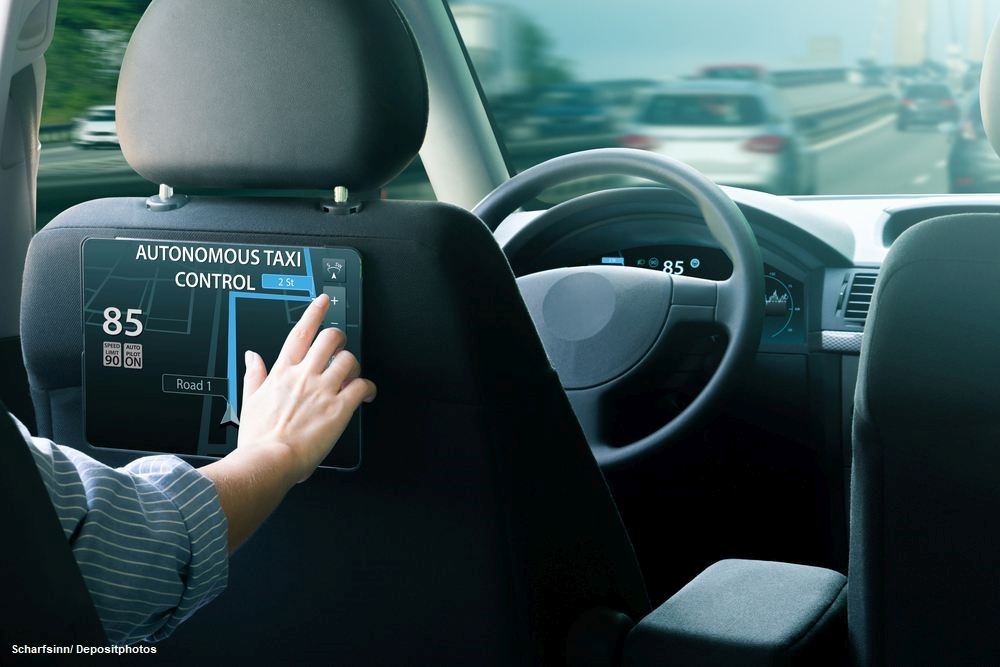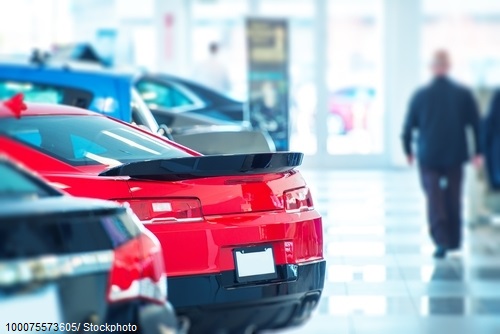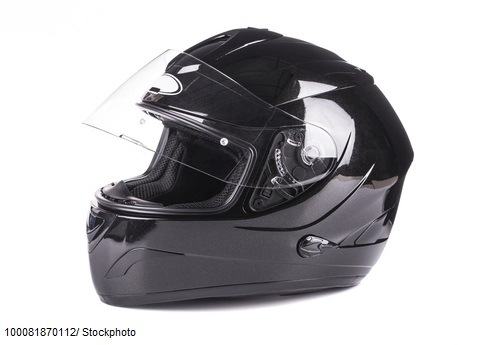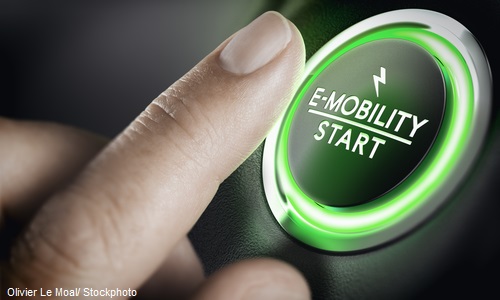Baidu launches driverless taxis in Chongqing and Wuhan
The operator of the eponymous Chinese search engine and AI developer Baidu began launching a driverless taxi service in the cities of Chongqing and Wuhan in August. This means that, in addition to the capital Beijing, fully autonomous taxis are in commercial operation in two other metropolises. At the same time, the government is consulting on a draft law for the use of self-driving vehicles in public transport. Baidu wrote in a statement that regulators granted permission for the Apollo Go driverless taxi service in the two cities. Vehicle and components in the automotive industry must be awarded a CCC certificate so that the products can be exported to China or manufactured locally.

Vice president of Baidu’s autonomous vehicles business Wei Dong said fully driverless vehicles on public roads with paying customers are a milestone the industry has been waiting for a long time. He expects the industry to now be able to deploy driverless transport on a large scale. Meanwhile, the Chinese government is consulting on the first draft of guidelines for the use of self-driving buses and similar means of transport. According to a report in the China Daily, the new laws will allow taxi companies to use the self-driving vehicles under certain conditions and provide guidance to local governments.
The draft law classifies driverless vehicles into three categories: limited, highly autonomous and fully autonomous. The limited and highly autonomous categories must be supervised by a human driver, while remote supervision is sufficient for fully autonomous vehicles. Chinese regulators gave the public until 7 September to assess the draft law and receive feedback.
Baidu says it is currently the only company with a permit to operate a driverless taxi service in Wuhan and Chongqing. Previously, numerous test runs were conducted with drivers as security personnel and passengers before the permit was granted. The driving area of the autonomous taxis covers a government-defined area in Wuhan and Chongqing of 13 and 30 square kilometres respectively. The vehicles used are an in-house development by Baidu subsidiary Apollo and are from the latest fifth generation of robo-taxis.
CCC certification is a complex project that requires professional support in all phases. For several years, MPR China Certification GmbH has been entrusted with large CCC projects for the vehicle manufacturers Lotus, Tesla and Bugatti. We will be pleased to provide you with non-binding advice on the scope and requirements of a China CCC certification.
For more information on how CCC certification, the CCC Self-Declaration and voluntary CCAP or CQC certification may affect your company, or for more information about CCC certification in general, please visit our News Section where you will find current updates twice a week.
Please do not hesitate to contact us for further details and consultation. You can contact us via e-mail, Chat, or call us (UK: +44 2071931135, Europe: +49 69 2713769150, US: +1 773 654-2673).
You can also check out our free CCC-Brochure, which can be downloaded as a PDF file. The brochure also contains information on the CCC Self-Declaration and the voluntary CQC- and CCAP-Certification).
First impressions of the latest GWM model Wey Coffee 01
Strictly speaking, Wey, like Ora, is a sub-brand of the Chinese group Great Wall Motor (GWM). The debut in Germany is with the SUV called “Coffee 01”, which is intended to compete with established luxury class models in terms of dimensions, equipment and performance. The 4.87-metre-long, 2.3-tonne plug-in hybrid has a system output of 476 hp. This results from a two-litre turbo petrol engine with 204 hp and one electric motor per axle, which delivers 135 or 184 hp depending on the version. A relatively large battery for plug-in hybrids with 39.7 kWh capacity enables a purely electric range of up to 146 kilometres. Fast charging via direct current with CCS is possible, albeit only with a meagre 50 kW. The power of the total of three motors is transmitted to the wheels via a nine-speed dual-clutch transmission developed by GWM itself. Vehicles and components must be awarded a CCC certificate in order for the products to be exported to China or manufactured locally.

Thanks to the electric motor support, acceleration from zero to 100 km/h in around five seconds is more than adequate for an SUV; the top speed is 235 km/h. After first test drives with pre-production models, the press reported an adequate power delivery and comfortable chassis tuning. Points of criticism were the indirect steering as well as a sometimes awkward operation via the 14.6-inch touchscreen. GWM announced that these problems should be eliminated by the time the first models are ready for series production respectively delivery. The interior workmanship is of high quality and makes a good impression. The space on the back seat is comparatively large, but the boot, which can be expanded to a maximum of 1250 litres, has a capacity of only 371 litres. The preliminary features are appropriate for the base price of 55,900 euros and consist of LED matrix lights, head-up display, sound system from Infinity as well as common driving assistants. In terms of safety, the Coffee 01 impresses with five stars in the NCAP crash test. In the second quarter, Wey plans to launch the Coffee 02, a compact plug-in hybrid SUV.
CCC certification is a complex project that requires professional support at all stages. For several years, MPR China Certification GmbH has been entrusted with large CCC projects for the vehicle manufacturers Lotus, Tesla and Bugatti. We will be pleased to provide you with non-binding advice on the scope and requirements of a China CCC certification.
For more information on how CCC certification, the CCC Self-Declaration and voluntary CCAP or CQC certification may affect your company, or for more information about CCC certification in general, please visit our News Section where you will find current updates twice a week.
Please do not hesitate to contact us for further details and consultation. You can contact us via e-mail, Chat, or call us (UK: +44 2071931135, Europe: +49 69 2713769150, US: +1 773 654-2673).
You can also check out our free CCC-Brochure, which can be downloaded as a PDF file. The brochure also contains information on the CCC Self-Declaration and the voluntary CQC- and CCAP-Certification).
Adoption of 373 national standards and 6 revision lists, including car pedals and mopeds/motorcycles
On 17.03.2023, the SAMR (State Administration for Market Regulation) promulgated 373 recommended national standards, such as “Highway Pavement Grade and Surface Type Code” and 6 revision lists of national standards, which are hereby announced.
The new standards also include GB Standards GB/T 5374-2023 “Test methods of reliability for motorcycles and mopeds” for mopeds and motorcycles and GB/T 17346-2023 “Test methods of pedal position dimensions of motor vehicles” for car pedals. These will come into effect on October 1, 2023. Products from these product categories usually require CCC certification to be approved for import and distribution in China.

The GB standards require the product conformity of products for the Chinese market. For more information on how CCC Certification, CCC Self-Declaration, or voluntary CQC and CCAP certification could affect your business, or information about CCC Certification in general, please visit our news section. There you will find up-to-date information twice a week.
For more information on how CCC certification, the CCC Self-Declaration and voluntary CCAP or CQC certification may affect your company, or for more information about CCC certification in general, please visit our News Section where you will find current updates twice a week.
Please do not hesitate to contact us for further details and consultation. You can contact us via e-mail, Chat, or call us (UK: +44 2071931135, Europe: +49 69 2713769150, US: +1 773 654-2673).
You can also check out our free CCC-Brochure, which can be downloaded as a PDF file. The brochure also contains information on the CCC Self-Declaration and the voluntary CQC- and CCAP-Certification).
New GB Standard GB/T 31486 for E-Automotive Batteries in China
The NCTAS (National Technical Committee of Auto Standardization) has released the new GB/T Standard GB/T 31486 “Electrical performance requirements and test methods for power supply for electric vehicles” for the consultation phase. The standards GB/T 31486 is a mandatory standard for the traction battery testing. Parts and components from the field of electromobility partly require CCC certification.

Published on April 26, 2023, the standard is in the consultation phase until June 25, 2023. As part of this, the authority is asking that the public and all relevant bodies and experts, provide the responsible body with valuable information comments and insights regarding the revised standard. In this way, the Electric Vehicle Department, which is subordinate to the Automotive Standardization Technical Committee and aims to ensure safety of electronic vehicles and improve the standard.
It is highly recommended for manufacturers of cells, modules, packs and battery system to observe the standard before its final implementation since in many cases the authorities are requesting that already approved vehicles and their components need to undergo re-tested according to the newly implemented standard.
The electric vehicle market in China is one of the most important and fastest growing in the world. As the topic of electric mobility in China continues to grow in importance, it is therefore crucial that good regulations are established. Many parts and components in the field of electric mobility require CCC certification.
As soon as we know which changes will be adopted for the new standard version, we will provide the information on our website.
For more information on how CCC certification, the CCC Self-Declaration and voluntary CCAP or CQC certification may affect your company, or for more information about CCC certification in general, please visit our News Section where you will find current updates twice a week.
Please do not hesitate to contact us for further details and consultation. You can contact us via e-mail, Chat, or call us (UK: +44 2071931135, Europe: +49 69 2713769150, US: +1 773 654-2673).
You can also check out our free CCC-Brochure, which can be downloaded as a PDF file. The brochure also contains information on the CCC Self-Declaration and the voluntary CQC- and CCAP-Certification).


